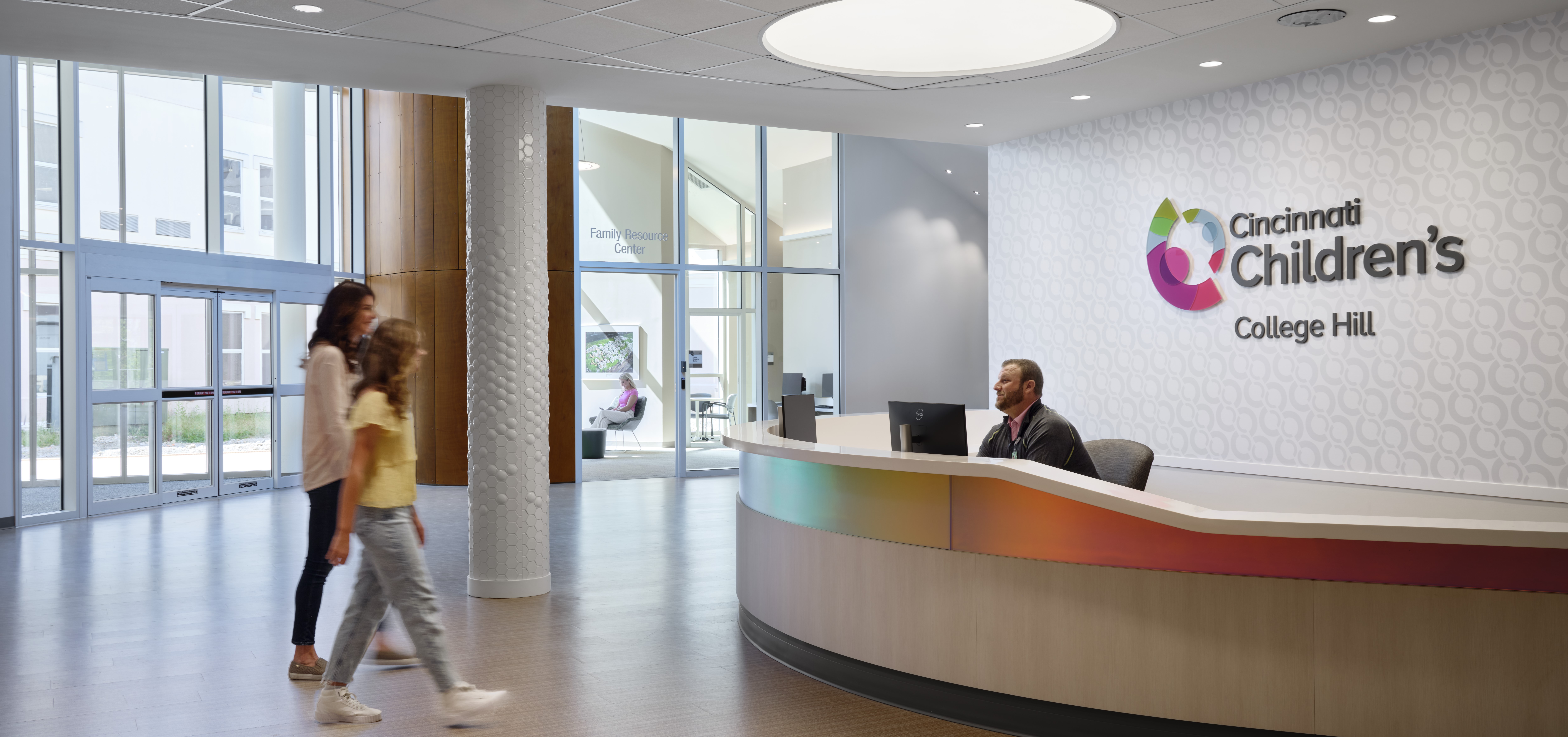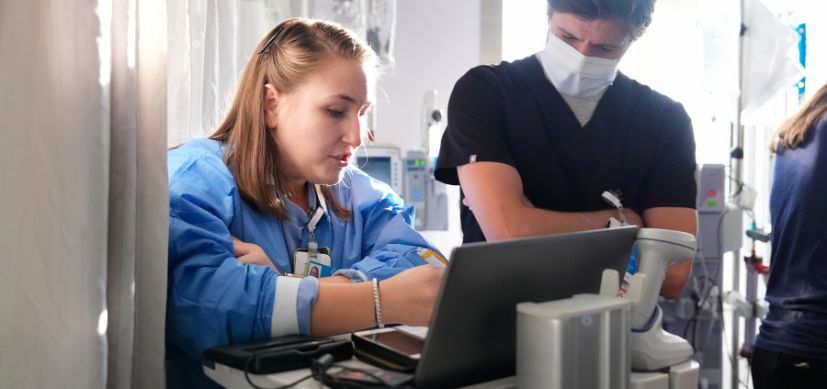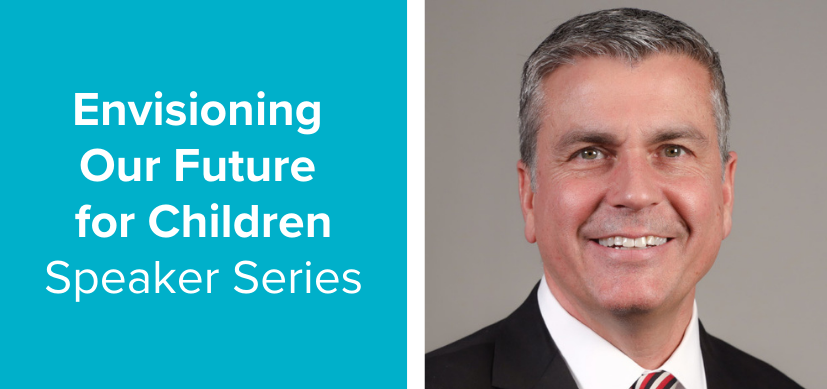Momentum Builds for Mental Health Progress
Post Date: May 29, 2024 | Publish Date:

New institute, improved facilities, research advances, expanding programs highlight Cincinnati Children’s mission to address the childhood mental health crisis
The statistics about childhood mental health seem stubbornly unwilling to change.
- By age 14, about 50% of all chronic mental illness has already begun, according to the National Alliance on Mental Illness.
- Yet the average delay remains 11 years between the onset of mental illness symptoms and when professional treatment finally begins.
- Since 2007, suicide rates among Americans ages 10 to 24 have soared 62%, according to the US Centers for Disease Control and Prevention.
- And when surveys ask young people themselves, their families, educators or health providers, responses reflect that a deep concern about a lack of well-being endures.
As Mental Health Awareness Month reminds us how entire communities can be impacted by the childhood mental health crisis, Cincinnati Children’s and many collaborating organizations are working to address the crisis in stronger, more effective ways.
“In the past year, we have taken several steps to expand the care we provide and the research we conduct so that children living with mental health conditions can thrive,” says Tina Cheng, MD, MPH, director of the Cincinnati Children’s Research Foundation, chair of the Department of Pediatrics, and chief medical officer of the health system.
“Assuring that all children have equitable access to the care they need is a community-wide challenge and we are excited and encouraged to be working with collaborators from throughout the community to accelerate our progress together,” notes Samir Shah, MD, MSCE, MHM, vice chair for Clinical Affairs and Education and interim director of the Cincinnati Children’s Mental and Behavioral Health Institute.
The multi-level effort includes:
Our new Mental and Behavioral Health Institute
Fueled by a $15 million gift in 2023 from The James J. and Joan A. Gardner Family Foundation, the Mental and Behavioral Health Institute helps Cincinnati Children’s accelerate and scale up its work to address childhood mental health needs.
The institute’s priorities include reducing mental health emergency visits and hospitalization rates through improved early intervention, reducing school absences due to mental health issues, and ultimately, eliminating youth suicide in our region.
The institute helps build deeper synergies among the 1,000+ care professionals within the divisions of Child and Adolescent Psychiatry, Behavioral Medicine and Clinical Psychology, and Developmental and Behavioral Pediatrics. Its structure also supports integrating research and care across other divisions and practices across the Cincinnati Children’s system.
Plans call for the institute’s new leader to be named within the next few months.
Expanded state-of-the-art care facilities
After several years of planning and construction, the William K. Schubert, M.D., Mental Health Center in College Hill began serving patients in fall 2023. The $108 million facility features new, fully private rooms for patients, a family resource center, an education center, and upgraded spaces for outpatient therapy.
The center’s design serves as a model for other cities seeking to provide the latest in evidence-based care. While the new inpatient rooms provide crucial spaces to help children in crisis, the larger impact of the re-designed center is intended to be felt long before patients are admitted.
“The College Hill inpatient care spaces are one part of a much wider restructuring. The changes that ultimately will help prevent children and teens from ever needing inpatient care will be happening in the community, in schools and in new models of outpatient care that seeks to reduce the need for emergency department visits,” says Michael Sorter, MD, director, Division of Child and Adolescent Psychiatry.
Creating evidence-based care models
As the severity of mental health needs adds stress to often-underfunded services, researchers at Cincinnati Children’s are leading the field in establishing and sharing methods to provide evidence-based treatments aimed at relieving the strain and addressing the need for care.
The pediatric health care system already embeds mental health professionals in its primary care clinics and has established a program that rapidly moves children with psychiatric emergencies to spaces better suited for their care compared to traditional hospital emergency departments.
In December 2023, Jessica McClure, PsyD, and colleagues published two important studies that lay out models for implementing best practices in pediatric mental health care; one focuses on expanding access to cognitive behavioral therapy, the other lays out core components of an “expert-driven training model” to help care organizations systematically implement best practices in mental health care.
“We are currently applying the core components of these papers to training school-based and outpatient therapists across the region through the Pediatric Improvement Network for Quality Care (PINQ) learning network,” says McClure, who also serves as medical director for Population Behavioral Health at Cincinnati Children’s.
“Thus far, we have trained about 300 community providers including about 140 school-based therapists. It is a very collaborative approach focused on sharing learnings across organizations,” McClure says. “These therapists received advanced training from our psychologists, have access to weekly case-based learning consult groups, and participate in monthly data sharing to measure clinical outcomes tied to these interventions.”
Innovation and research
With one of the largest mental health faculties in the United States, experts at Cincinnati Children’s are frequently breaking new ground across the spectrum of mental, emotional and behavioral conditions that can affect children and teens.
Recent innovations include launching the nation’s first Heart and Mind Wellbeing Center to help children better cope with the fears and stresses of heart disease; designing a specialized driver’s training program that has demonstrated a 40% reduction in crash risk among young drivers with ADHD; demonstrating that cognitive behavioral therapy to manage migraine pain produces measurable changes in brain function in managing migraine pain, and establishing that emotional and behavioral problems among children can be detected in primary care settings at earlier-than-expected ages.
“Our research efforts are transformative and changing the clinical care landscape for mental and behavioral health,” says Avani Modi, PhD, interim director for the Division of Behavioral Medicine and Clinical Psychology.
Early detection of mental illness using trajectories
Researchers at Cincinnati Children’s are diving even deeper into a mission to improve early detection of mental illness by tapping into world-leading expertise and using some of the most powerful supercomputers to design, test and refine a trajectory-based clinical decision support tool.
The Mental Health Trajectories Program in the Decoding Mental Health Center led by John Pestian, PhD, and Tracy Glauser, MD, now includes a team of over 30 international experts. The program seeks to provide an early warning system for mental health issues like anxiety, depression, suicide ideation and violent outbursts by patients.
With more than $10 million in support from Cincinnati Children’s and nearly $1 million in philanthropic backing, the team is testing a real-time resource that finds patterns in medical records, demographic, environmental, and social determinants of health data to identify which children face potentially serious risks.
“Since half of all lifetime psychiatric disorders begin by age 14, and the average delay between onset and treatment is 11 years, early identification will accelerate care before problems snowball into emergencies and lifelong chronic illness,” Pestian says.
This program’s intricate data and sophisticated methods require teams at Cincinnati Children’s to collaborate with experts from Oak Ridge National Laboratory in Tennessee, Los Alamos National Laboratory in New Mexico, the UK, and Canada. They are using the world’s most powerful computers to develop decision support systems that analyze how changes in a patient’s body and brain can indicate the onset of mental illness.
Thus far, an early version of the new tool has revealed patterns in the data that were previously undetected. These new patterns will help clinicians identify signs of clinical-level anxiety in children at least 60 days before they receive formal diagnoses and 30 days before they require admission to the emergency department.
Mental health resources
988 Suicide & Crisis Lifeline – Dial or text 988 if you or someone you know is having thoughts of suicide or experiencing a mental health crisis and get connected to a trained crisis counselor 24 hours a day, 7 days a week.
Learn more about mental health programs and services at Cincinnati Children’s
Support Cincinnati Children’s mental and behavioral health initiatives







